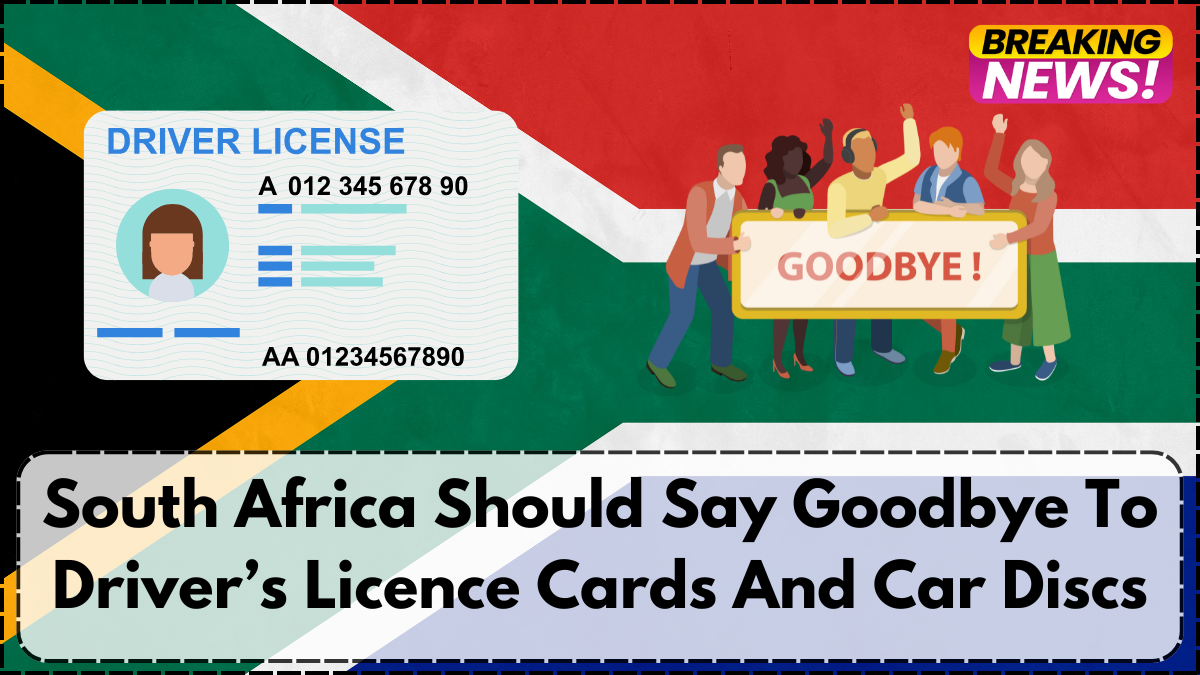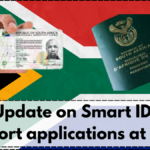As of April 2025, South Africa is at a crossroads regarding the modernization of its driving licence system. The debate centers on transitioning from traditional physical driving licence cards and vehicle licence discs to a fully digital, permanent licensing system. This shift aims to enhance efficiency, reduce costs, and combat corruption within the licensing process.

The Case for Digital Transformation
Rob Handfield-Jones, managing director of Driving.co.za, advocates for the complete digitization of driving licences. He argues that with each driver having unique fingerprints and every vehicle possessing a Vehicle Identification Number (VIN), physical documents are redundant. Handfield-Jones suggests that if tax collection can be managed via an app, so too can driver verification and enforcement.
Government’s Digital Licence Rollout Plans
The South African government had initially planned to introduce electronic driving licences (eDLs) by the end of March 2025. This initiative was to offer motorists the choice between a physical card and a digital licence upon renewal. However, the rollout has faced delays due to procurement issues and legal challenges surrounding the tender process for new licence card systems.
Challenges in Implementation
In August 2024, the tender for the new driving licence card system was awarded to Idemia, a French company specializing in cryptography and biometrics. However, the legitimacy of this contract was questioned due to procedural irregularities identified by the Auditor-General. Transport Minister Barbara Creecy is currently deliberating whether to proceed with or cancel the contract, with legal advisors warning that cancellation could lead to prolonged legal disputes.
Financial Implications of Physical Licences
The cost of maintaining physical licence systems is substantial. The government planned to procure three new card printing machines, each costing approximately R334 million. Handfield-Jones highlights that the production cost per card is significantly lower than the renewal fee charged to motorists, suggesting that the government profits considerably from the current system.
Comparative Analysis: Physical vs. Digital Licensing
| Aspect | Physical Licence Cards | Digital-Only Licences |
|---|---|---|
| Production Cost | High | Low |
| Renewal Requirement | Every 5 years | Permanent |
| Verification Process | Manual | App-based |
| Risk of Corruption | Higher | Lower |
| Accessibility | Limited | Broad (via smartphones) |
Global Trends in Digital Licensing
Several countries, including Denmark, Iceland, Mexico, and Norway, have adopted digital driving licences. These systems often utilize proprietary apps and QR codes, allowing for easy verification by traffic officials. In some cases, licences can be stored in digital wallets like Apple Wallet, enhancing convenience for drivers.
Infrastructure Readiness in South Africa
South Africa possesses the necessary infrastructure to support digital licences. The Administrative Adjudication of Road Traffic Offences (Aarto) Act mandates that traffic officers carry digital terminals capable of scanning licence barcodes, including those displayed on smartphone screens. Moreover, the widespread use of smartphones with internet connectivity facilitates the adoption of digital licensing.
Addressing Road Safety Concerns
Handfield-Jones emphasizes that the current physical licensing system has not effectively improved road safety. He notes that since the introduction of licence renewals in 1998, the fatality rate on South African roads has increased significantly. This rise is attributed to the prevalence of fraud and corruption in the licensing process, leading to unqualified individuals obtaining driving licences.
Conclusion
Transitioning to a digital-only driving licence system presents an opportunity for South Africa to enhance efficiency, reduce costs, and improve road safety. While challenges exist, particularly concerning procurement and legal hurdles, the potential benefits of digitization are substantial. Embracing this change could position South Africa as a leader in digital governance and public service delivery.
Frequently Asked Questions
What are the benefits of digital driving licences?
Digital driving licences offer increased convenience, reduced administrative costs, and enhanced security features. They also minimize the risk of fraud and are easier to update and verify.
How will digital licences be verified by traffic officers?
Traffic officers will use digital terminals to scan QR codes or barcodes displayed on a driver’s smartphone, allowing for instant verification of licence validity.
Will physical driving licences be completely phased out?
While the government aims to transition to digital licences, a complete phase-out of physical cards will depend on infrastructure readiness and public adoption rates.
What measures are in place to prevent fraud in digital licensing?
Digital licences incorporate biometric verification and secure digital signatures, making them more resistant to tampering and fraud compared to physical cards.
How does the cost of digital licences compare to physical ones?
Digital licences are generally more cost-effective due to lower production and distribution expenses, resulting in potential savings for both the government and motorists.
For More Information Click Here
Pari is a passionate writer known for captivating stories that blend imagination and reality. Inspired by travel, history, and everyday moments, Pari crafts narratives that resonate deeply with readers.




